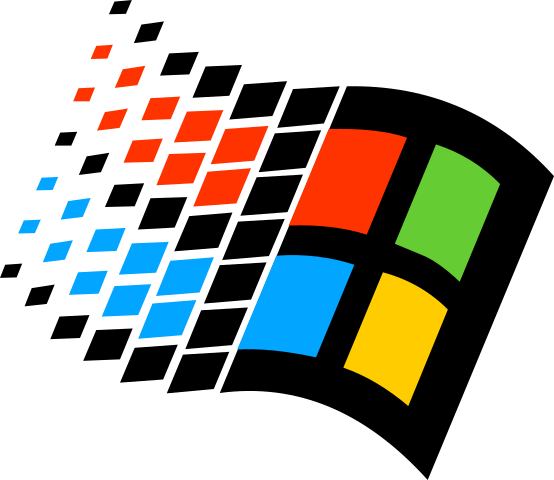Generates bindings to COM interfaces, enums and coclasses.
See the test-msxml and test-wmi subdirectories for full examples of using
this library to generate bindings for the MSXML library and the WMI library
respectively.
-
Find the typelib for the COM library you want to generate bindings for:
- If you have a
.tlbfile, use that. - If you have a
.dllwith an embedded.tlbresource, use that. - If you have a
.idl, generate a.tlbwithmidl.exefrom the Windows SDK viamidl.exe .\foo.idl /tlb .\foo.tlband use that.
To be sure that a
.tlb/.dllwill work withwinapi-tlb-bindgen, you can create a C++ project in MSVC and try to#importthe.tlb/.dll. If that compiles, then it should work withwinapi-tlb-bindgen - If you have a
-
Add your dependencies. You can either use the utilities of the crate
cargo-editto do that:# add winapi-tlb-bindgen to build deps from github cargo add winapi-tlb-bindgen --git https://github.com/cdbrkfxrpt/winapi-tlb-bindgen.git --build # add winapi to deps with the correct features cargo add winapi@0.3.9 --features "objbase oleauto winerror" # OPTIONAL: add anyhow for easier error handling cargo add anyhow@1 --build cargo add anyhow@1
The features for the
winapicreate give you access to things likeHRESULT,IUnknownand other COM types. You may want to enable other features for the things you need.Alternatively, you can add the dependencies manually to your
Cargo.toml, which should then look at least like this:[dependencies] anyhow = "1" winapi = { version = "0.3.9", features = ["objbase", "oleauto", "winerror"] } [build-dependencies] anyhow = "1" winapi-tlb-bindgen = { git = "https://gitlab.bmc-labs.com/libraries/winapi-tlb-bindgen.git" }
-
Add a build script
build.rsin the project root, right next to theCargo.tomlfile. The build script has to use this crate to generate the bindgen output for the COM library, like so:use anyhow::Result; // optional; used to let main return `Result` use std::{env, fs, path::Path}; fn main() -> Result<()> { // the TLB file is the input; it contains the library spec let tlb_filepath = Path::new("path/to/tlb_file").join("my_lib.tlb"); // the bindings path is where we are going to write our lib bindings let bindings_path = Path::new(&env::var("OUT_DIR")?).join("my_lib.rs"); // let's generate some bindings winapi_tlb_bindgen::build(&tlb_filepath, false, fs::File::create(bindings_path)?)?; // if we made it here, things went swell Ok(()) }
-
Generate the bindgen output in your main code. You can do this simply above your main or at the beginning of your
lib.rs, but adding a module for this purpose is probably more convenient:// src/my_lib.rs // silence warnings for identifier names and unused functions #![allow(non_camel_case_types, non_snake_case, unused)] use winapi::{shared::{guiddef::GUID, minwindef::{INT, UINT}, winerror::HRESULT, wtypes::{BSTR, DATE, VARIANT_BOOL}}, um::{oaidl::{IDispatch, IDispatchVtbl, LPDISPATCH, VARIANT}, unknwnbase::{IUnknown, IUnknownVtbl, LPUNKNOWN}}, ENUM, RIDL, STRUCT}; include!(concat!(env!("OUT_DIR"), "/my_lib.rs"));
You may need to adapt the
winapiimports to your use case. Compiler warnings will give you guidance.// src/main.rs or src/lib.rs mod my_lib;
-
Build your crate.
-
Compare the output against the C++ headers generated by MSVC with
#import. File a bug if something was emitted incorrectly. -
Enjoy your COM API bindings.
// src/main.rs mod msxml; fn main() { unsafe { let hr = winapi::um::objbase::CoInitialize(std::ptr::null_mut()); assert!(winapi::shared::winerror::SUCCEEDED(hr)); let mut document: *mut winapi::ctypes::c_void = std::ptr::null_mut(); let hr = winapi::um::combaseapi::CoCreateInstance( &<msxml::DOMDocument as winapi::Class>::uuidof(), std::ptr::null_mut(), winapi::um::combaseapi::CLSCTX_ALL, &<msxml::IXMLDOMDocument as winapi::Interface>::uuidof(), &mut document, ); assert!(winapi::shared::winerror::SUCCEEDED(hr)); let document = &*(document as *mut msxml::IXMLDOMDocument); // ... document.Release(); } }
The winapi-tlb-bindgen-bin crate is a binary that takes in the path of the
typelib as a command-line parameter, and writes the bindgen output to stdout.
This can be used to generate bindings manually for greater control, as opposed
to using a build script to automatically generate the bindings on every build.
You would also do this if you wanted your crate to be able to be built on
non-Windows platforms.
cd winapi-tlb-bindgen-bin
cargo run -- 'C:\Program Files (x86)\Windows Kits\10\Lib\10.0.16299.0\um\x64\MsXml.Tlb'